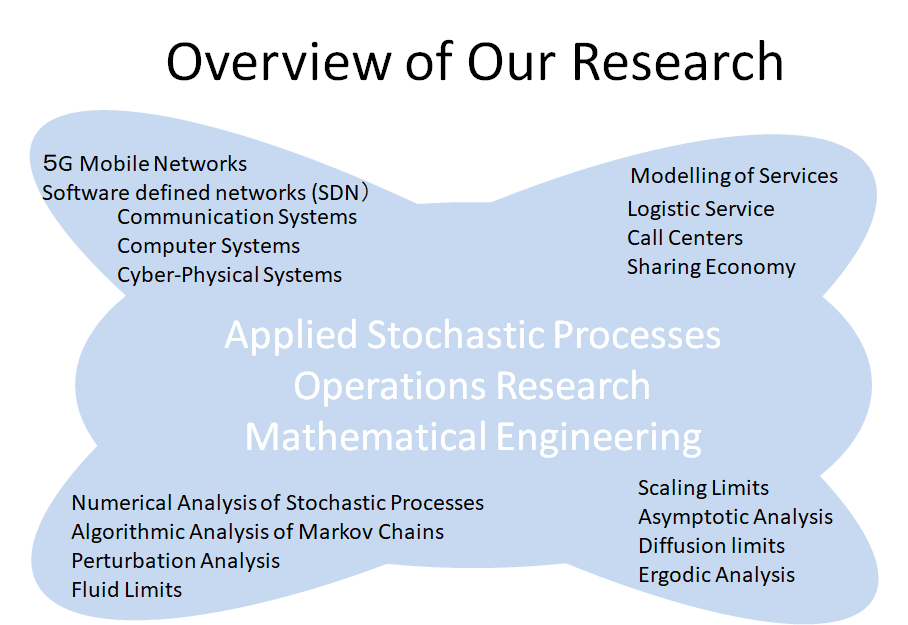Research Topics
Stochastic Models for Resource Sharing Systems

Resource sharing systems are ubiquitous in our daily life. We are using many kinds of social infrastructure such as train, bus, and road, library, hospital etc. One of important features in these systems is that the demand is uncertain and thus it must be modelled using stochastic process. Queueing Theory is a well-established field providing theory and models for these systems. We have been pursuing the development of queueing theory and its applications in many service systems. In particular, we have contributed to the theory of queueing systems with customer behaviors such that retrial behavior, abandonment etc. These behaviors bring new mathematical challenge to the analysis of the models.
We are also interested in resource sharing in computer and communication systems where the resources are hardware, wireless band, energy etc. In particular, we have been developing and analyzing some queueing models for energy-efficient data centers, 5G mobile systems and Software Defined Networks (SDN).
Recently, we are interested in sharing economy where many new services are implemented in our society. In particular, we are interested in mobility sharing services and mathematical models for them. We are also interested in systems where human is the major resource which is not easy to increase or decrease. In particular, our recent research focuses on logistic systems with customers’ participants.
Applied Stochastic Processes
Stochastic processes arising from real world resource sharing systems often have some special features which could be utilized to have efficient solutions in comparison with general framework. For each application, we find its possible unique feature and provide elegant and non-trivial solution.
We also develop new framework for analyzing large classes of stochastic models arising from real world systems. Here, in the research of applied stochastic processes, it is required the sense from both real systems and mathematics. Thus, we are interacting with both mathematicians and engineers to develop new problems and provide useful solutions.
Recently, we are interested in high-dimensional stochastic processes and their asymptotic analysis. We are also interested in machine learning algorithms and theoretical understanding them.

